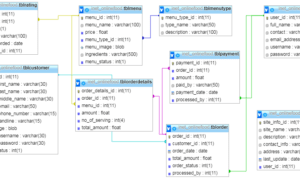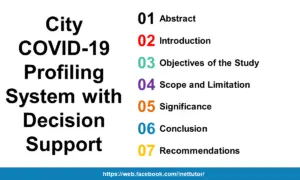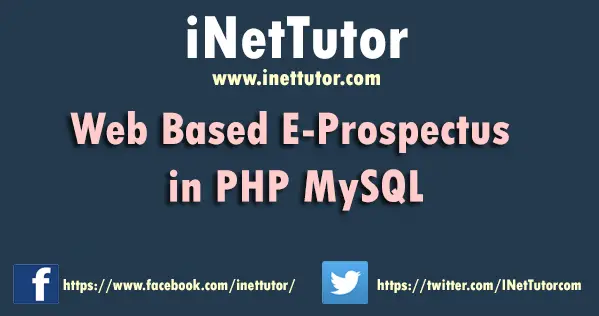15 IT Projects in the field of Software as a Service (SaaS)
Introduction
In today’s rapidly evolving digital landscape, Software as a Service (SaaS) has emerged as a pivotal technology model, transforming how businesses and individuals’ access and utilize software applications. SaaS is a software distribution model in which applications are hosted by a third-party provider and made available to customers over the internet. This model has gained immense popularity due to its ability to deliver robust, scalable, and cost-effective solutions without the need for significant upfront investments in hardware or software.
One of the key reasons behind the growing popularity of SaaS is its numerous benefits. For businesses, SaaS applications offer unparalleled flexibility and scalability, allowing companies to easily adjust their usage based on demand. This is particularly advantageous for small and medium-sized enterprises (SMEs) that might not have the resources to invest in extensive IT infrastructure. Additionally, SaaS solutions typically come with regular updates and maintenance handled by the service provider, ensuring that users always have access to the latest features and security enhancements without the hassle of manual upgrades.
For individuals, SaaS applications provide the convenience of accessing software from any device with an internet connection, facilitating remote work and collaboration. The subscription-based pricing model of SaaS also makes it easier for individuals and businesses to manage their budgets, as they can pay for only what they use on a monthly or annual basis.
But the true potential of SaaS lies in its vast potential for innovation. This blog post isn’t here to simply explain SaaS – it’s here to ignite your entrepreneurial spirit! We’ll delve into 15 cutting-edge SaaS project ideas that cater to the ever-evolving needs of today’s users. Whether you’re a seasoned developer or brimming with a brilliant idea, this list will serve as a springboard for launching the next big SaaS revolution. So, buckle up and get ready to explore the exciting future of software!
15 IT Projects in the field of SaaS
- Customer Relationship Management (CRM) System: Develop a SaaS CRM platform tailored for businesses to manage their customer interactions, sales, and marketing efforts.
- Enterprise Resource Planning (ERP) Software: Create a comprehensive SaaS ERP solution to integrate core business processes such as accounting, HR, inventory management, and supply chain management.
- Project Management Tool: Build a SaaS project management tool with features like task tracking, team collaboration, file sharing, and progress reporting.
- Human Resource Management System (HRMS): Develop a SaaS HRMS platform to streamline HR processes including employee onboarding, payroll management, performance evaluation, and leave management.
- Accounting Software: Design a SaaS accounting software for small to medium-sized businesses to manage their finances, invoicing, budgeting, and financial reporting.
- Document Management System (DMS): Create a SaaS DMS platform for organizations to store, organize, and share documents securely, with version control and access permissions.
- Learning Management System (LMS): Develop a SaaS LMS for educational institutions or corporate training programs to deliver and manage online courses, assessments, and certifications.
- Marketing Automation Platform: Build a SaaS marketing automation tool to streamline marketing campaigns, lead nurturing, email marketing, and analytics.
- Collaboration and Communication Tool: Develop a SaaS collaboration platform with features like messaging, video conferencing, document collaboration, and project management.
- Customer Support Ticketing System: Create a SaaS customer support ticketing system for businesses to manage customer inquiries, complaints, and support tickets efficiently.
- E-commerce Platform: Build a SaaS e-commerce platform for businesses to set up and manage online stores, including features like inventory management, payment processing, and order fulfillment.
- Inventory Management System: Develop a SaaS inventory management system to help businesses track stock levels, manage orders, and optimize supply chain operations.
- Expense Management Software: Design a SaaS expense management solution to streamline the tracking, approval, and reimbursement of employee expenses.
- Healthcare Practice Management Software: Create a SaaS practice management system tailored for healthcare providers to manage appointments, patient records, billing, and claims.
- Real Estate Management Software: Develop a SaaS platform for real estate professionals to manage property listings, tenant relationships, leasing agreements, and property maintenance.
The Future of SaaS
The future of Software as a Service (SaaS) looks exceptionally promising, driven by continuous technological advancements, increasing adoption across various industries, and evolving business needs. As the SaaS industry matures, several key trends and growth opportunities are emerging that will shape its trajectory in the coming years.
- Artificial Intelligence and Machine Learning Integration
One of the most significant trends in the SaaS industry is the integration of artificial intelligence (AI) and machine learning (ML). SaaS providers are increasingly leveraging these technologies to enhance their offerings with advanced analytics, predictive capabilities, and automation. AI-powered SaaS applications can provide personalized user experiences, optimize business processes, and deliver insights that drive better decision-making. For example, AI can help CRM systems predict customer behavior, enabling businesses to tailor their marketing strategies more effectively.
- Vertical SaaS Solutions
While horizontal SaaS solutions cater to a broad range of industries, vertical SaaS solutions are tailored to meet the specific needs of particular industries such as healthcare, finance, retail, or manufacturing. This trend towards vertical specialization allows SaaS providers to offer more customized and industry-specific functionalities, addressing unique pain points and regulatory requirements. As a result, businesses in these sectors can achieve greater efficiency and compliance with solutions designed specifically for their environment.
- Increased Focus on Security and Compliance
As cyber threats continue to evolve, the importance of robust security measures and compliance with regulations becomes paramount. SaaS providers are investing heavily in advanced security technologies, such as encryption, multi-factor authentication, and continuous monitoring, to protect sensitive data. Additionally, compliance with industry-specific regulations, such as GDPR in Europe or HIPAA in healthcare, is becoming a critical selling point for SaaS solutions. Providers that can demonstrate strong security and compliance capabilities will gain a competitive edge in the market.
- Hybrid and Multi-Cloud Strategies
With the increasing adoption of cloud computing, many organizations are embracing hybrid and multi-cloud strategies to avoid vendor lock-in, enhance resilience, and optimize costs. SaaS providers are responding by ensuring their applications are compatible with multiple cloud environments and can seamlessly integrate with on-premises systems. This flexibility allows businesses to choose the best deployment model for their needs and leverage the strengths of different cloud providers.
- Expansion of Low-Code and No-Code Platforms
Low-code and no-code development platforms are democratizing software development by enabling non-technical users to create and customize applications with minimal coding knowledge. This trend is making it easier for businesses to rapidly develop and deploy SaaS applications tailored to their specific needs without relying heavily on IT resources. As these platforms become more sophisticated, we can expect a surge in innovative SaaS solutions created by citizen developers.
- Enhanced Collaboration and Remote Work Tools
The COVID-19 pandemic has accelerated the shift towards remote work and increased demand for collaboration tools. SaaS providers are continuously enhancing their offerings to support distributed teams with features like real-time collaboration, video conferencing, and project management. These tools are becoming more integrated, user-friendly, and secure, ensuring that remote and hybrid work environments are as productive and seamless as traditional office settings.
- Microservices and API-Driven Architectures
Microservices architecture and API-driven development are becoming the standard for modern SaaS applications. This approach allows for greater modularity, scalability, and flexibility, enabling SaaS providers to quickly iterate and deploy new features. API-driven architectures also facilitate easier integration with other applications and services, creating a more interconnected and interoperable software ecosystem.
- Sustainability and Green IT Initiatives
As environmental concerns gain prominence, the SaaS industry is increasingly focusing on sustainability and green IT practices. SaaS providers are optimizing their data centers for energy efficiency, utilizing renewable energy sources, and implementing sustainable business practices. These efforts not only reduce the carbon footprint of SaaS solutions but also appeal to environmentally conscious customers and investors.
The future of SaaS is characterized by innovation, specialization, and an unwavering focus on security and customer needs. As these trends continue to evolve, the SaaS industry will unlock new opportunities for businesses and individuals, driving efficiency, creativity, and growth across all sectors. By staying attuned to these developments, organizations can leverage SaaS to stay competitive and responsive in an increasingly dynamic digital landscape.
Conclusion
The world of SaaS is brimming with potential, and this blog post has merely scratched the surface. We’ve explored 15 innovative SaaS project ideas, spanning from AI-powered customer service chatbots to user-friendly design prototyping tools. Each idea holds the potential to revolutionize specific aspects of modern business operations.
From streamlining remote healthcare to simplifying social media management, SaaS solutions are fundamentally transforming how businesses operate. They empower businesses to be more agile, scalable, and cost-effective, all while prioritizing exceptional customer experiences.
But the true beauty of SaaS lies in its vast applicability. The ideas presented here are just a springboard – a launchpad for innovation. We encourage you to delve deeper and explore how SaaS solutions can address the specific challenges and opportunities within your industry or niche.
So, get creative! Conduct market research, identify unmet needs, and leverage the power of SaaS technology to craft a solution that disrupts the status quo. Remember, the next big innovation in SaaS could be coming from you!
Readers are also interested in:
- Top 35 Capstone Project Ideas with SMS
- 60 Best ER Diagram Examples
- 70 Best Web-Based Capstone Projects in PHP and MySQL
You may visit our Facebook page for more information, inquiries, and comments. Please subscribe also to our YouTube Channel to receive free capstone projects resources and computer programming tutorials.
Hire our team to do the project.


